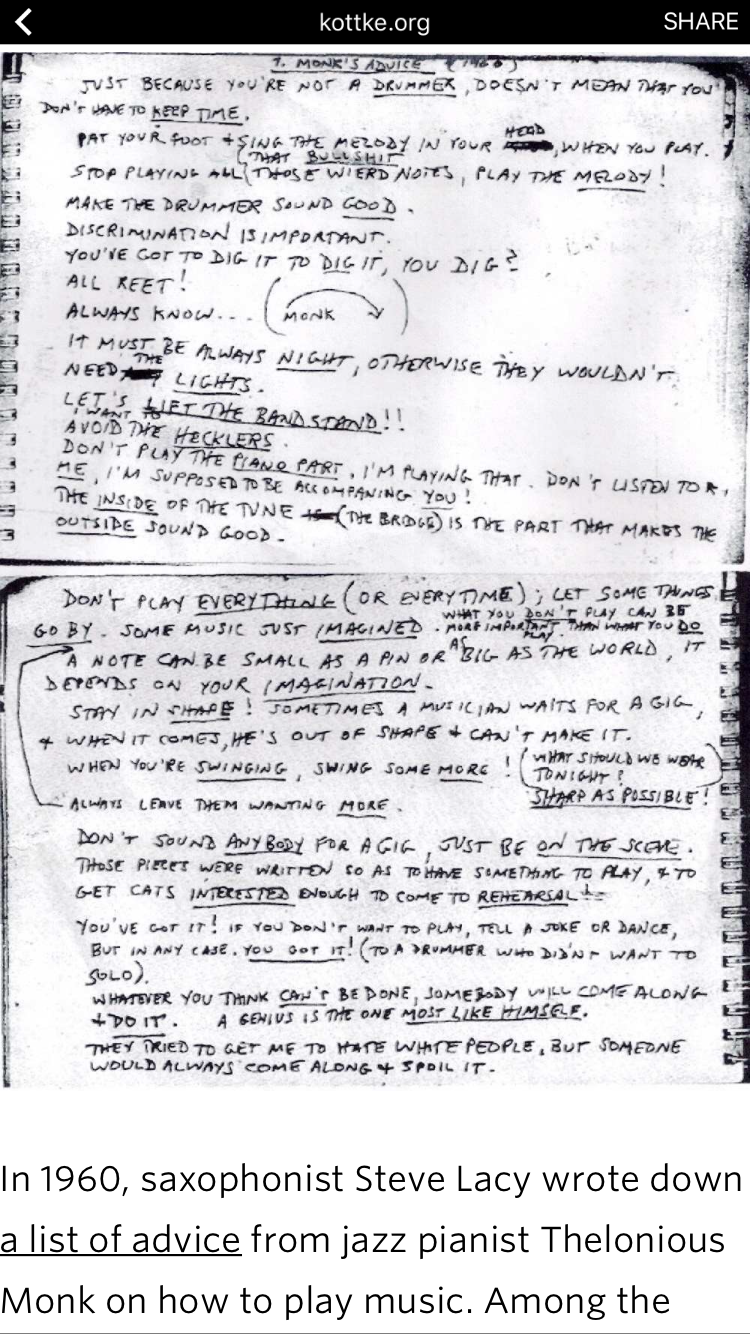"Tapping" and "touch" playing tend to polarize listeners. Here's where I stand, if anyone cares. I like to hear a variety of articulation and attacks on guitar-- originally the guitar was technically a percussion instrument, at least in part. Electricity has moved the instrument away from that, and I like to try to keep at least some percussiveness in my playing; if you work at it, you can develop a variety of attacks and keep some snap and bite in your sound. The touch approach takes all the edge off your attack, and for me the monochromatic result is less than thrilling. I remember when Stanley Jordan was hot years ago, and in a Blindfold Test in some magazine Leslie West (I think it was Leslie West) said he thought Jordan sounded like two lame players playing a duet. Jordan's hard work and virtuosic technique deserve credit, certainly, but I thought Leslie had a point.
I like Dave Bunker's sound. He essentially is playing in a Chet Atkins style, but the two-handed approach enables him to play a Chet backup part with chords and bass while he adds slides and double/triple stops in the melody. It sounds nice, but arguably has the same pros and cons of Chet's work. Don't get me wrong; I love Chet, Merle Travis, Mose Rager, et al. but they fall into the category with Stanley Jordan, Johnny Smith, and everyone else who uses a complex and unorthodox system to get more out of the guitar at one time than most players can get. These approaches, which often sound very beautiful and musical, mostly involve heavily practiced patterns and little or no improvising. There's nothing wrong with that, obviously, and I've stolen what I can from some of these guys, but I'm generally more excited by the improvising players. The placid quality of most of these maverick players loses me after a while. I feel the same way about the many whizkids you can find on youtube, playing heavy-metal two-handed versions of classical pieces, Queen songs, etc. For me there's a staleness about this kind of music-- it's fun watching someone play two or more parts at once, but ultimately it seems more a circus trick than creative art.
For anyone who feels that these are "fightin' words" I would encourage everyone to check out the late genius Ted Greene. Greene blended Bach-inspired counterpoint with jazz vocabulary, improvising in this style. I think there's a lot more going on musically in Ted's work than in that of the touch and tap guys. Check out the tribute site for Ted's music and teaching--
tedgreene.com/default.asp
The site has killer video and audio clips, plus many lessons for anyone serious or crazy enough to try to play this way. I have a few lessons on my guitar blog
karlstraubguitar.blogspot.com/2008/12/bach-counterpoint-exercise.html
karlstraubguitar.blogspot.com/2008/12/improvising-counterpoint-two-voices.html
about counterpoint playing; my stuff is pretty crude compared to Ted but it can get you started.












2 comments:
cool Post Karl. I totally agree about how the Stanley Jordan thing can be really boring. I feel the same way about two handed tapping. And that's NOT just because I never learned how to do it and am jealous. I, like you, am always trying to find ways to coax more emotion and feeling out of each note by picking it in various ways. Also, I find that I'm using my right hand fingers more and more which I think allows for even more expressiveness (at the expense of some speed and evenness).
Thanks again, Karl.
Andy Rutherford
andy, thanks for reading and commenting! please feel free to email with suggestions for posts.
i'm not against speed, i just think that it's a mathematical formula-- the more you focus on speed, the less you can focus on tone and creativity-- even with a genius like charlie parker, at horserace tempos he tended to be less inventive. (still great, though!)
re: tapping. i think there's a reason why you can find teenagers that can execute the insanely fast van halen stuff, but you don't find too many teens who can play like freddy king.
Post a Comment